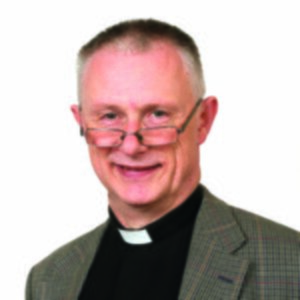Alan Gregory has been Principal of St Augustine’s College of Theology since 2014. We asked him to talk about himself, his role and what he thinks St Augustine’s College of Theology offers our students.

A bit about me
Among contemporary clergy, including those who’ve recently graduated from St Augustine’s, I am statistically unusual in that, since I was ordained at 23, I’ve never had a ‘real’ job outside the Church.
I’ve always been involved in some way in the business of theological education, whether I was working in a parish, studying for a Ph.D, or teaching in residential or non-residential colleges. After finishing my curacy in the Guildford Diocese, I taught Christian Doctrine at the late and too little lamented Salisbury and Wells Theological College before heading off to the USA for the next 25 years.
There, I took up a research fellowship at Emory University and worked in an Atlanta parish as assistant rector and, later, as interim rector in Athens, Georgia. In 1995, Suzy and I, with three children, a dog, two cats, and a parrot, moved to Texas where I spent 15 years as Professor of Church History and Historical Theology at the Seminary of the South West in Austin, where I also served as Academic Dean. Returning to the UK in 2011, I worked for three years in a parish in Northumberland and as Continuing Ministerial Development officer for the Newcastle Diocese.
St Augustine’s College of Theology (or SEITE, as it then was) appointed me as Principal in 2014. This was and remains a great joy. About a month after I started, I attended my first residential week in Canterbury. At the end of each day, the staff talked over what had happened and I realised that I had never met college tutors so observant and so concerned about individual students and their formation. I’ve tried to live up to that level of commitment, because, in my experience, it’s rare.
My role
The Principal’s role combines institutional leadership, administration, pastoral care, and teaching, and the job is only possible because of the shared efforts of the staff as a whole. As Principal, I have considerable responsibility for external relations, working with dioceses, the board and stakeholders. In recent years, there has been a quantum leap in the need for marketing and presenting a public face that catches the imagination and shows students how they will receive a quality education as well as personal formation in whatever pathway they’ve chosen.
The other part of our jobs as academics (perhaps a smaller part than we would wish) is theological research and writing. Research and writing feeds into teaching and keeps us excited about new things we can share with students. It’s hard to find the time, of course. I had a book out on Science Fiction and Theology in 2015 but since then another one on evil has progressed as speedily as molasses on a pool table. Still, I’m over halfway, I think.
What stands out to you about St Augustine’s?
Another aspect of my job is to attend to and hold the college’s vision and core values. The college I joined (as SEITE) was something of a well-kept secret. Those who knew us greatly appreciated what we did, but we’d rather fallen behind in marketing ourselves. Until recently, that didn’t matter too much, but in a more competitive world we had to work on developing both our self-awareness and our self-presentation. The re-branding process we went through in 2015 was hugely important because it not only gave us a new look, and, of course, a new name but, most of all, it forced us to ask ourselves ‘who are we, and what do we stand for?’ Our answer, then and now, we put into the tag line, ‘transforming formation’.
What gets me out of bed in the morning (other than walking Albert the Great Dane) is a delight in helping people change, grow in self- and spiritual awareness and confidence. As a whole, the staff decided that that was indeed what made us tick and what we stood for.
Students come to us not just to learn stuff but because they desire personal, spiritual change as inherent in the process of learning. They come with a question on their hearts; “Who am I, and what should I become before the face of God?” Watching people coming to understand what they once found difficult, willing to try what once terrified, able to take to heart what once was denied or feared, all this is a great privilege.
Learning new ways to pray, new ways to read the Bible, think about God, relate to others, appreciate differences of experience, outlook, tradition, culture, class, ethnicity, this is what we get to help with, what we see going forward. Simply a wonderful job, so good, it probably doesn’t count as a ‘real’ one.
Change, of course, especially the kind of change we’re talking about, isn’t easy; actually, it’s quite disturbing and unless the environment for spiritual change is itself sustaining, the chances of very much happening diminish. People tell me they feel safe here. The word ‘safe’ may sound a bit lacking in vigour but I think it points to something crucial, which is trust. “This is a place where I can trust the people who have a significant impact on my life and future.” Above all, “I believe these people are interested in my flourishing.” And we are.

